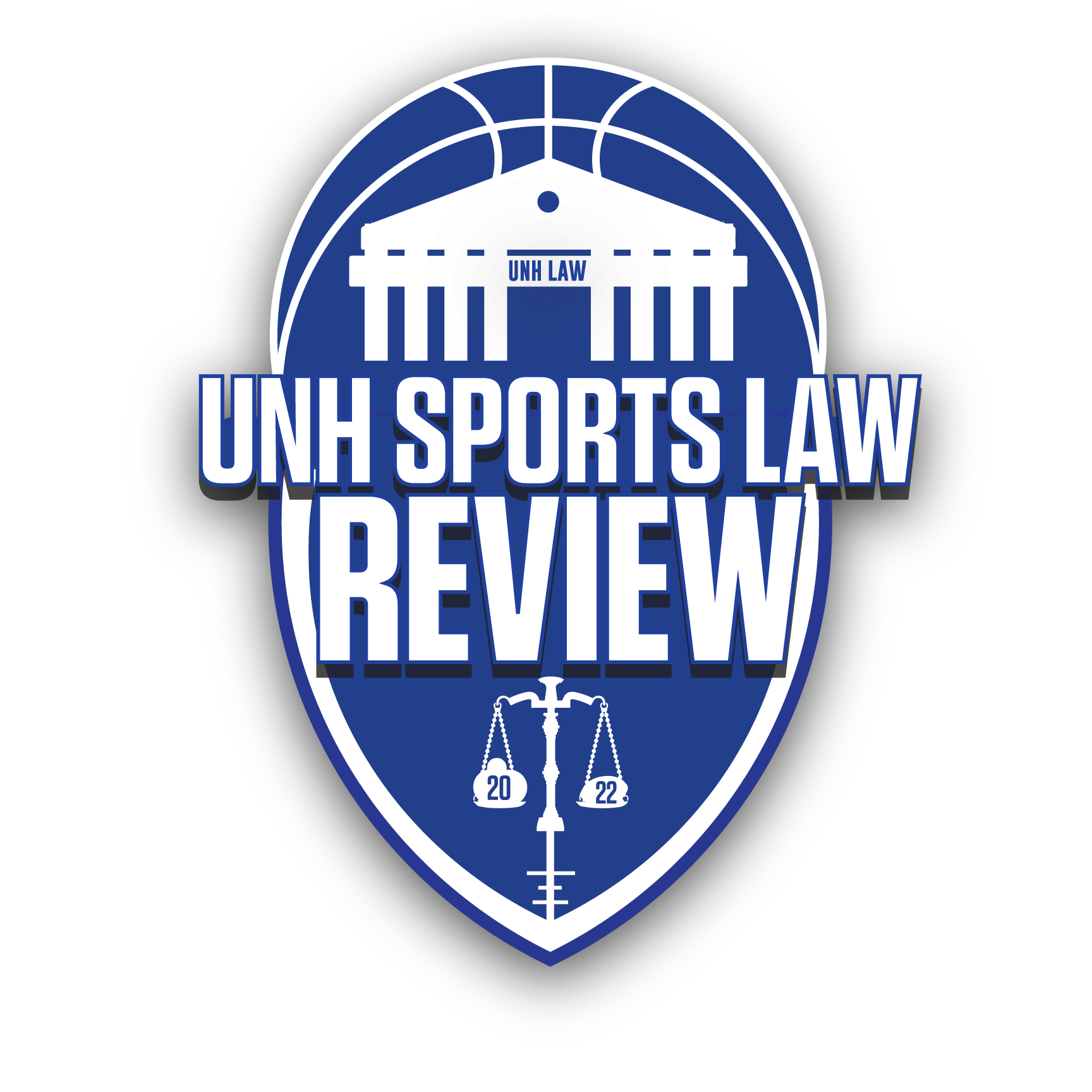
UNH Sport Law Review Publication Ethics Statement
The UNH Sport Law Review (the “Law Review”) is a scholarly legal publication of The University of New Hampshire Franklin Pierce School of Law that produces an annual volume of four issues. Its website is UNH Sports Law Review | University of New Hampshire – Franklin Pierce School of Law | University of New Hampshire. The Law Review is committed to following these guidelines for publication ethics. See: Core practices | COPE: Committee on Publication Ethics.
1. Authors and Authors’ Responsibilities
All submissions to the Law Review must be original and unpublished. If selected for publication, the author gives up their ability to publish the same work in another journal.
All authors must have significantly contributed to the research and writing of the work they submit. The author is responsible for including the correct co-authors, ensuring no incorrect co-authors are listed, and that all co-authors have seen and approved the final work and have agreed to its submission for publication.
Authors shall cite to all sources of data and publications that were influential in the creation of their submitted work. Original research must be presented accurately. Authors shall be prepared to make data or research publicly available, if practicable, and may be asked to provide raw data. Authors shall make data publicly available for a reasonable time after publication. This applies as long as the confidentiality of research subjects can be maintained and proprietary data can legally be released. Authors shall provide an accurate resume of their qualifications, references, and current employment. If applicable, authors shall disclose sources of financial support for or sponsorship of their research.
2. Review Process
All Law Review content is subject to review by the editorial board. Any manuscripts received for review will be treated as confidential documents. The manuscripts will not be shown to or discussed with others unless authorized by the Law Review editor. All reviews shall be conducted objectively, and reviewers must not have a conflict of interest. Reviewers must ensure that the work acknowledges and cites to sources as necessary. Any overlap between the submitted work and another published paper of which the reviewer has knowledge should be brought to the Editor-in-Chief’s attention.
3. Editor Responsibilities
In making decisions as to which articles are published in the Law Review, editors may be guided by the editorial board’s policies as well as U.S. legal requirements as to libel, copyright infringement and plagiarism. Editors should maintain the integrity of the academic record, and refrain from allowing business needs to override intellectual and ethical standards. Editors must always be willing to publish corrections, clarifications, retractions, and apologies when needed.
Editors should evaluate submissions without bias regarding race, gender, class, sexual orientation, religious belief, ethnic origin, citizenship or political philosophy of the author(s). This Law Review shall strive to publish works that evaluate all sides of an argument and leave no group or class of people marginalized.
Editors will not disclose any information about a submission to anyone other than the author, reviewers, other editorial advisors, and the publisher. Editors cannot use unpublished materials disclosed in a submission for their own research without consent of the author. Privileged information or ideas obtained through reviewing must be kept confidential and not used for personal advantage. If applicable, editors must refrain from evaluating a submission if they have a conflict of interest.
4. Publication Ethics
Publishers and editors shall take reasonable steps to identify and prevent the publication of papers where research misconduct has occurred. Neither this Law Review nor its editors shall encourage such misconduct, or knowingly allow such misconduct to take place. In the event that the Law Review’s publisher or editors are made aware of an allegation of research misconduct, the publisher or Editor-in-Chief shall deal with allegations appropriately. The Law Review reserves the right to discontinue publication of a paper if it deems that research misconduct has occurred.


